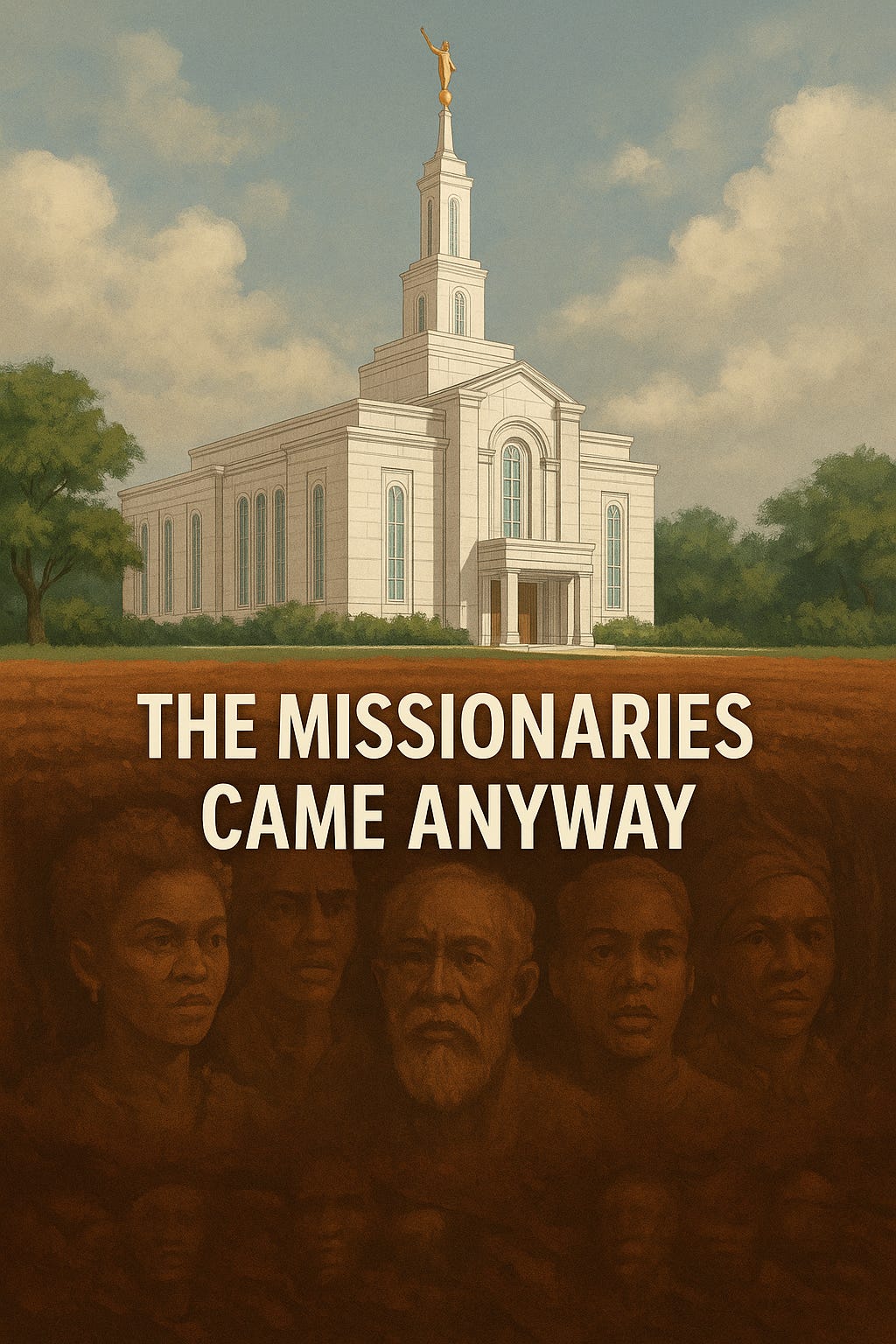Beneath Their Temples, My Ancestors Still Sing
The Inheritance They Couldn’t Erase
The missionaries came anyway.
Because that’s what missionaries do.
They go where they believe people are “missing something.”
They arrive not to learn, but to replace.
Not to serve, but to recruit.
And somehow, some way, they have the audacity to build temples on sacred ground they once deemed unworthy.
Not because they’ve repented.
But because colonization al…
Keep reading with a 7-day free trial
Subscribe to Say it With Your Chest to keep reading this post and get 7 days of free access to the full post archives.



